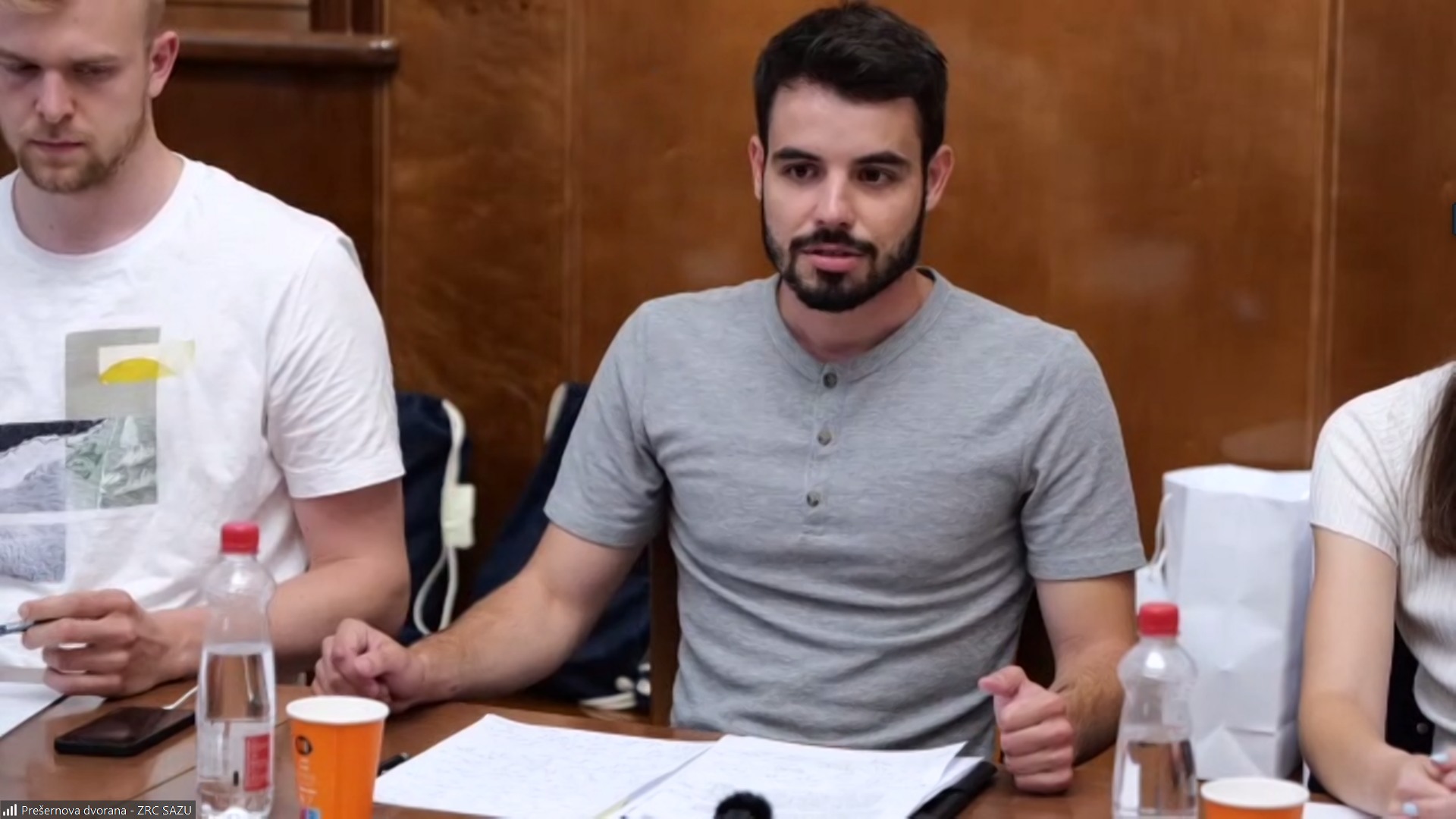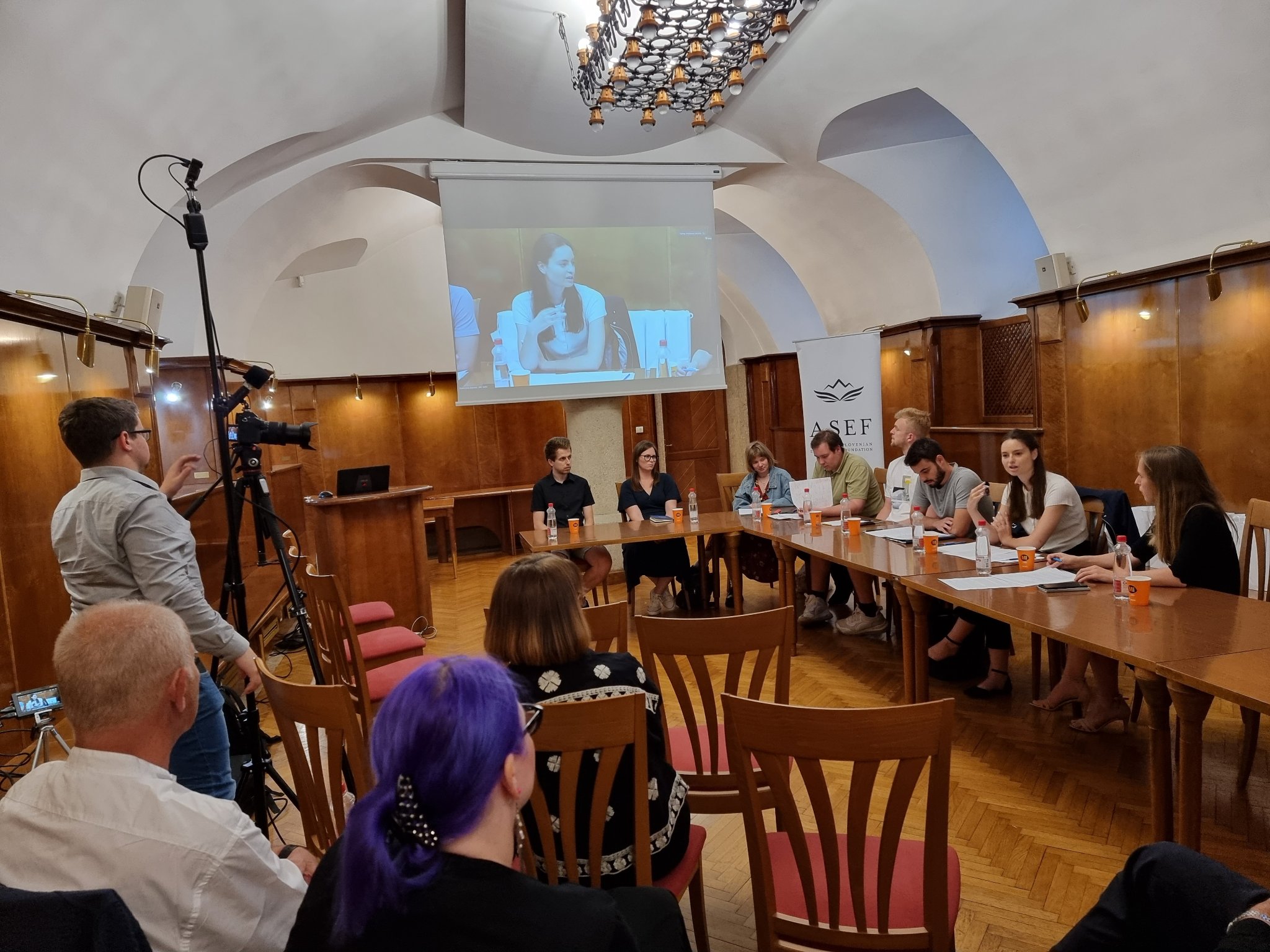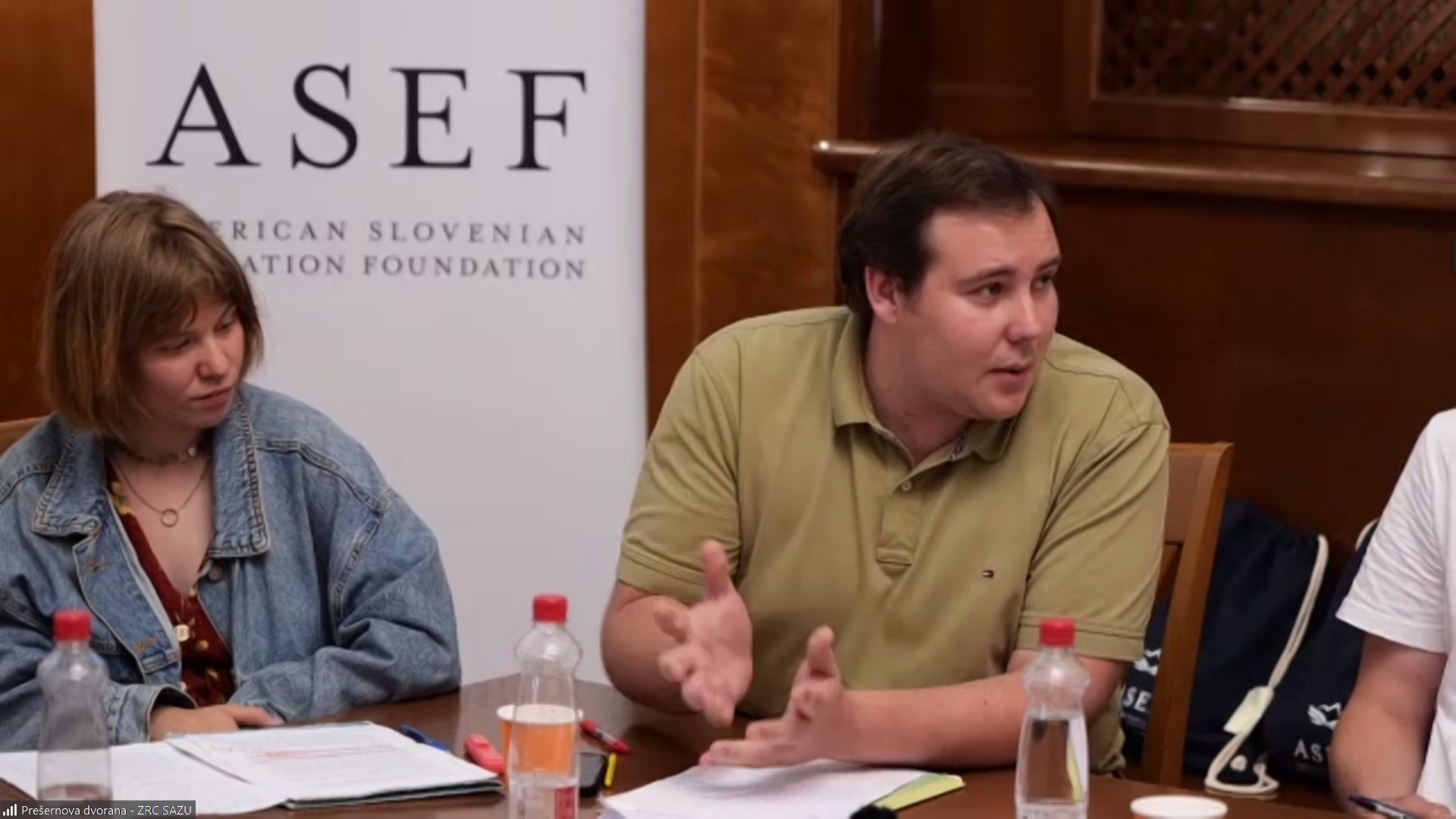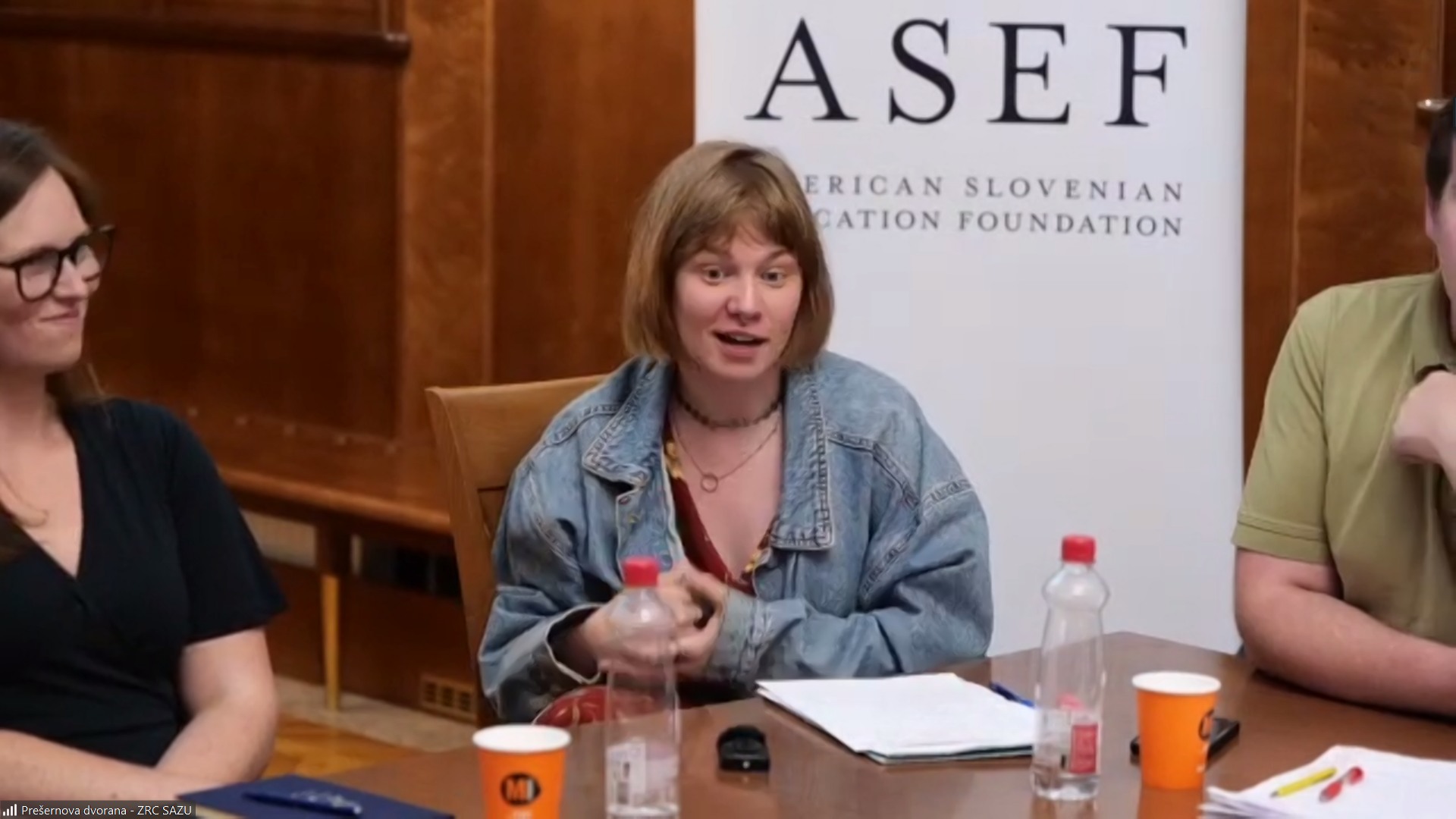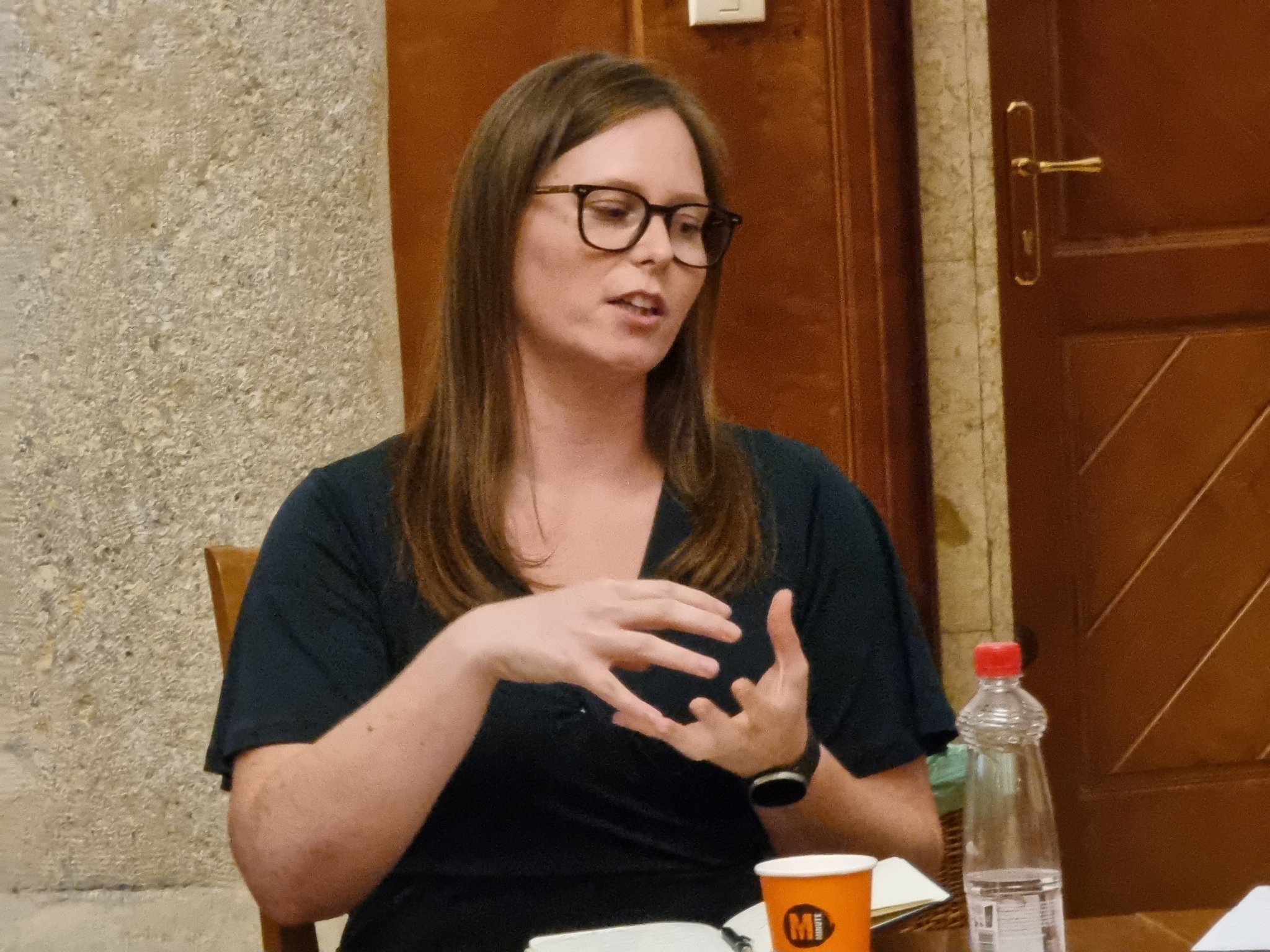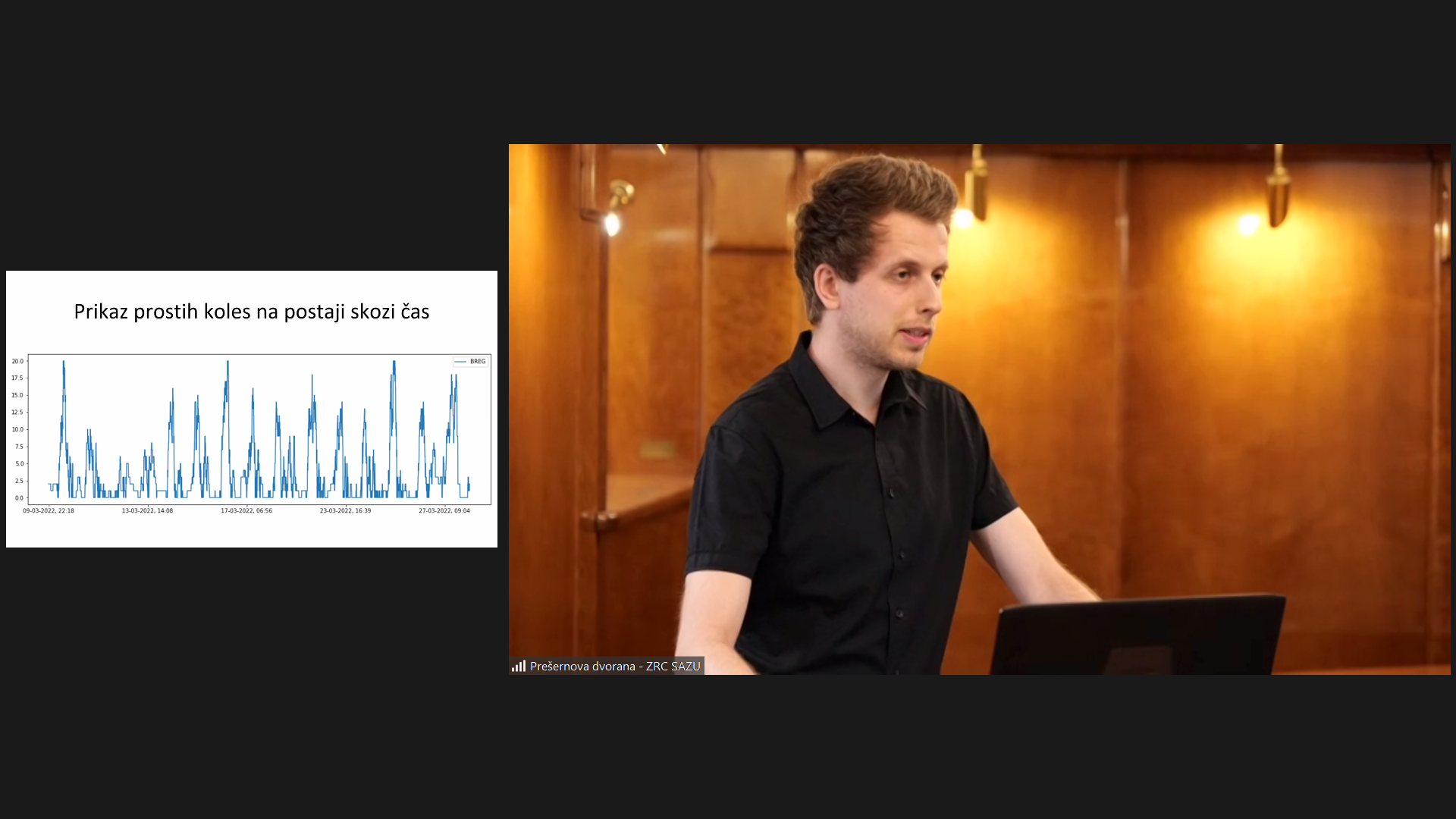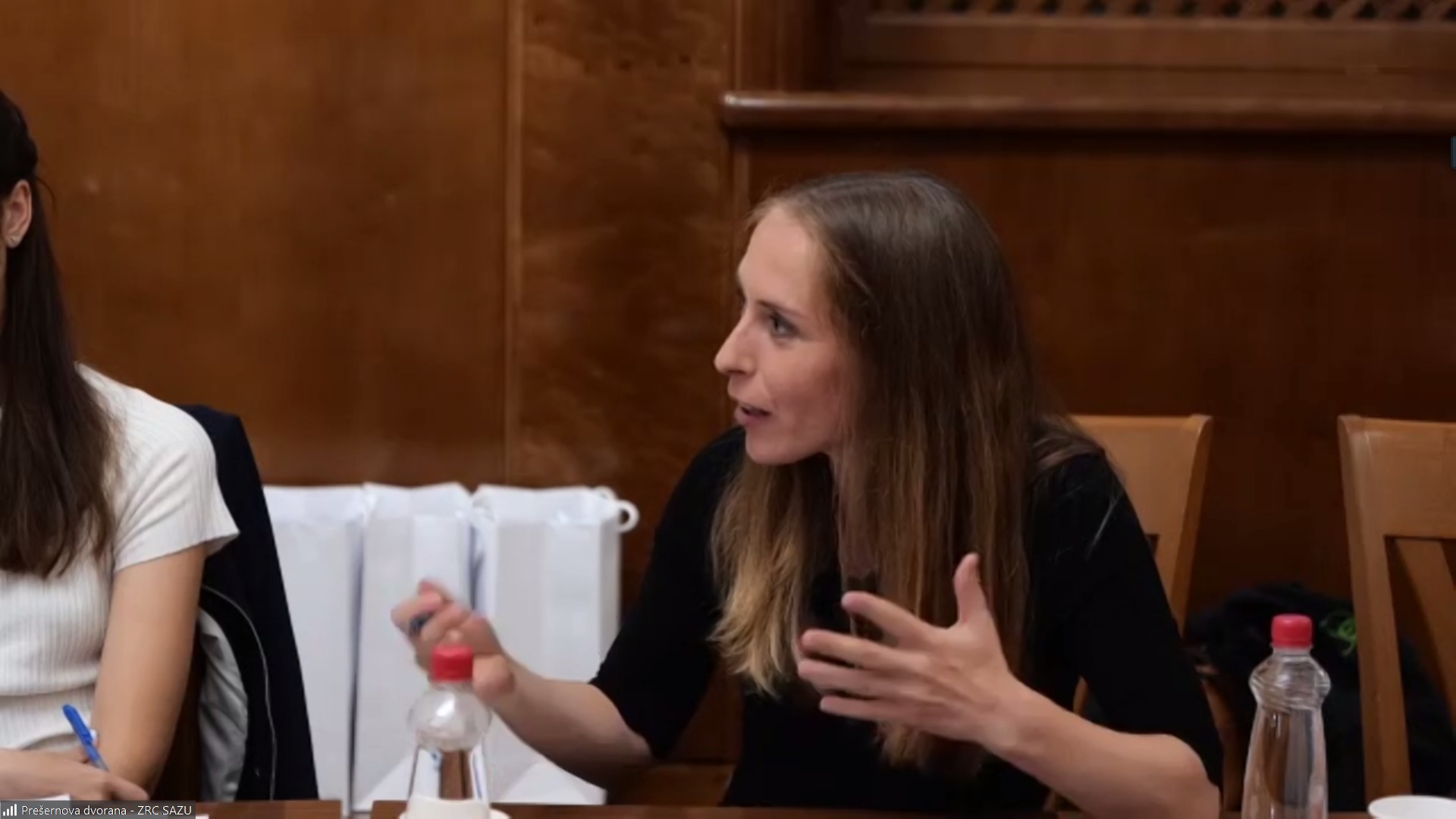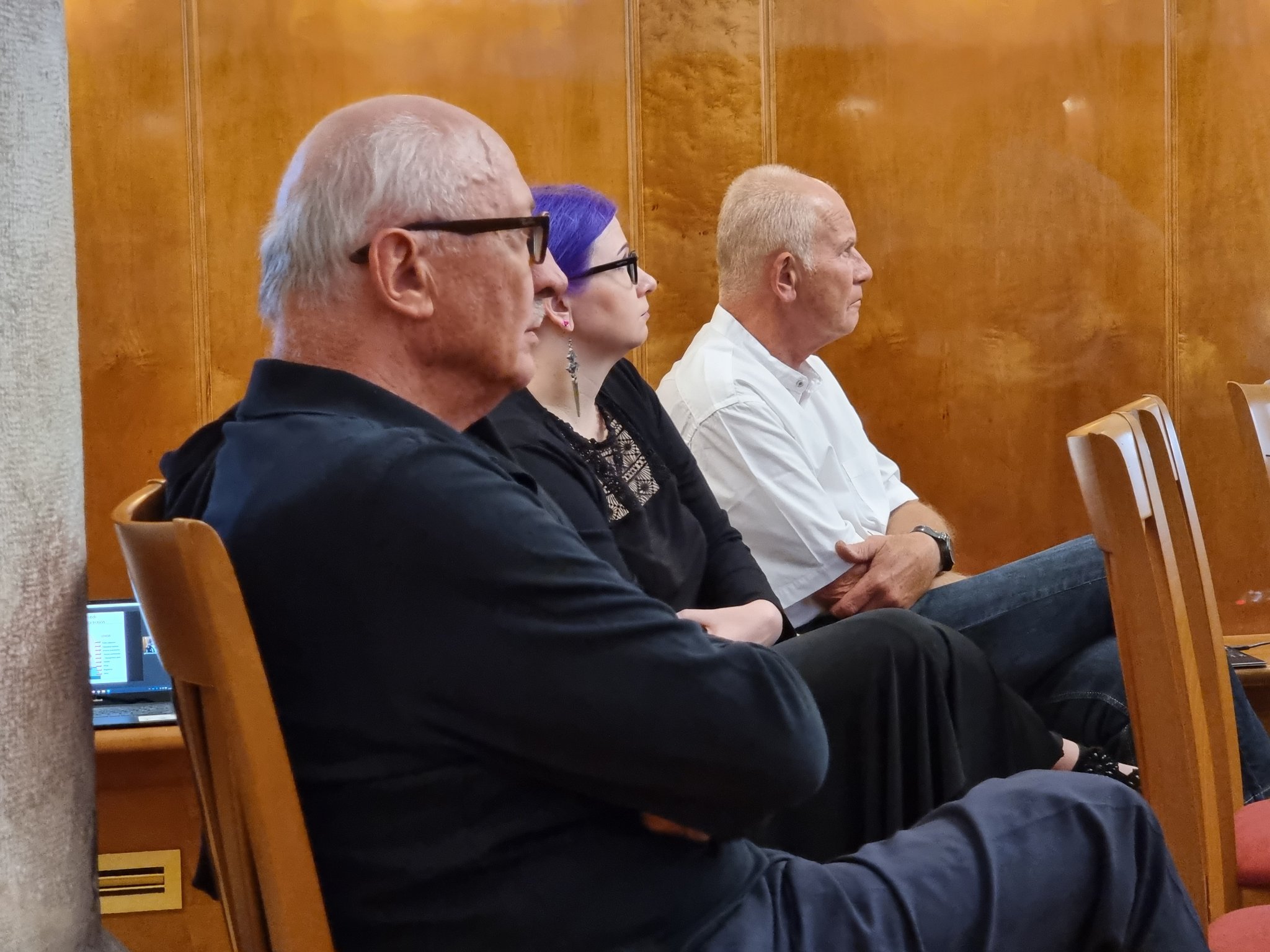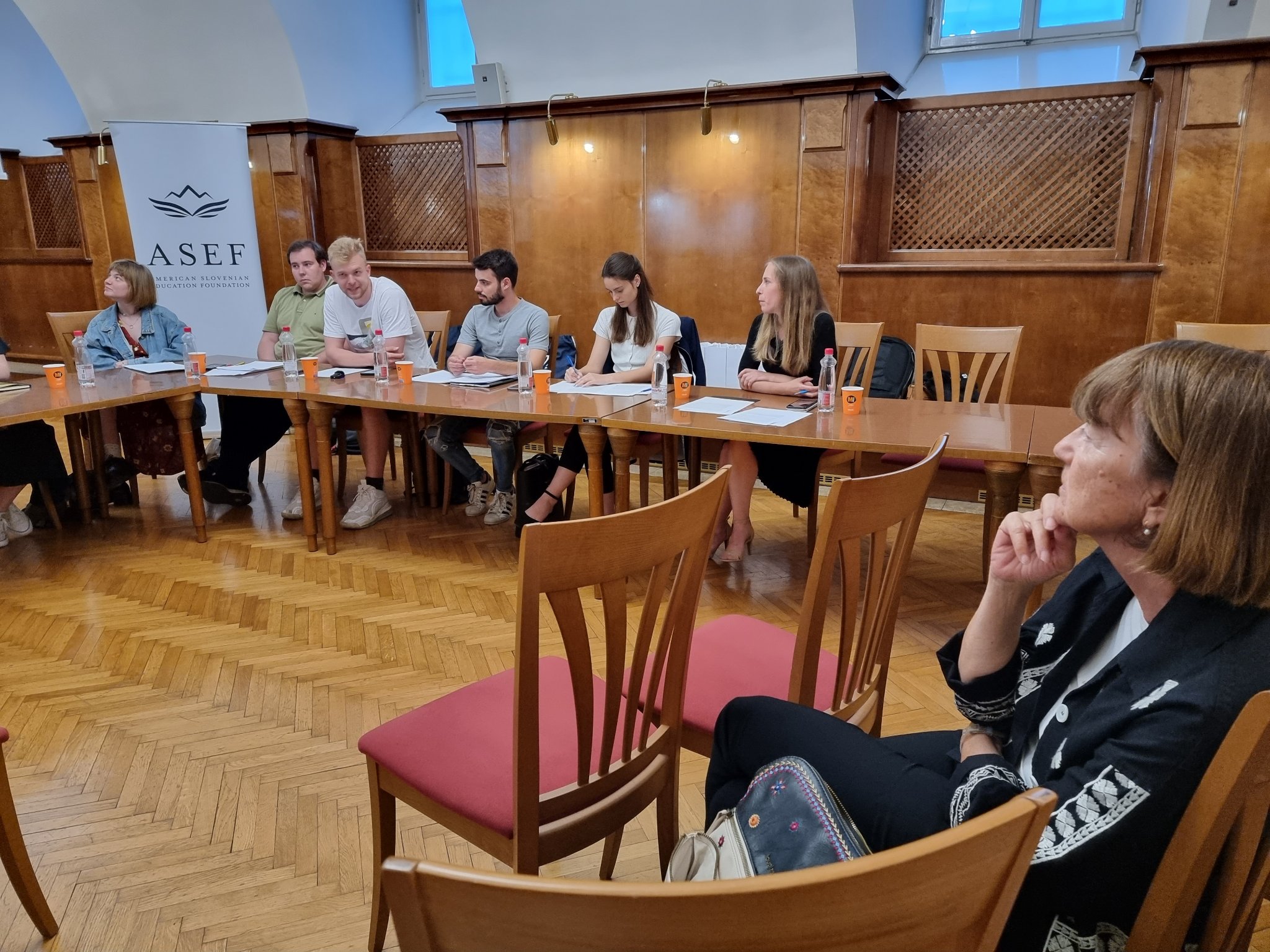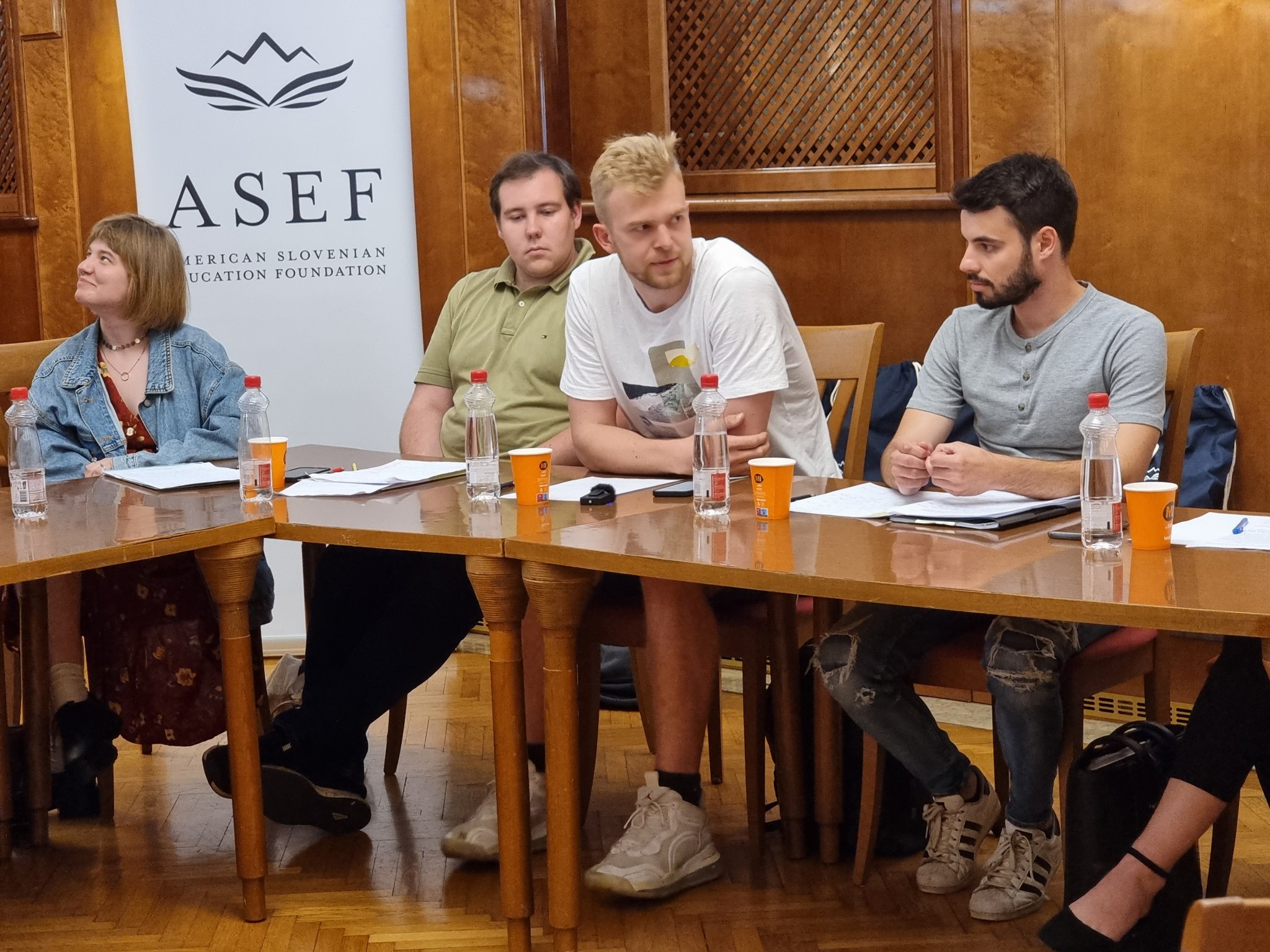
What Cities Will We Live in the Future? Conclusions of the Work of Tutoring Groups
With the third and at the same time the last round interdisciplinary table of the City of the Future III, ASEF successfully completed the ASEF Tutoring program for the academic year 2021/2022.
The round table took place on 8 June in hybrid form – in the Prešeren Hall at SAZU in Ljubljana and via the Zoom platform. At the beginning of the event, Jože Rožanec, a member of the ASEF Tutoring program group, gave a welcoming speech, thanking everyone for their participation in the program and reminding them of the importance of the Slovene language with a few encouraging words on Primož Trubar’s Day.
This time the special guest of the round table was dr. Lučka Kajfež Bogataj, professor at the Department of Agronomy at the Biotechnical Faculty of the University of Ljubljana, who was awarded the Nobel Peace Prize in 2007 as part of the Intergovernmental Panel on Climate Change (IPCC) team. In her address, she spoke about the future of a planet that is not growing. She highlighted the importance of natural resources, the impact of climate change, the problem of inequality and population growth, and the importance of learning and thinking about the future. She concluded her speech by thinking that for the future we want, we need innovation, new institutions, new infrastructure and, above all, a new lifestyle.
Tjaša Mlakar presented the work of the Group for Biochemistry and Chemistry, which explored trends in innovation in the pharmaceutical industry in an article prepared within the group. They listed and described the various approaches used by the pharmaceutical industry, from start-up accelerators to virtual research. She also spoke about the impact of the COVID-19 epidemic, as companies were much more involved in finding medicines and vaccines than usual. She stressed that she sees a contribution to a better future in doing good for all and not just for financial contribution.
Tine Šteger from the group for economics and business informatics spoke about the field of sustainable transport. He focused on the importance of efficient and accessible public passenger transport. In his group, they thought about solutions at the local community level and worked on the case of Slovenia. In doing so, they wondered why there are differences in interest in such solutions between different municipalities and also how the psychological perception of public transport affects its use. In the end, he added that in his opinion, “car sharing” is the form of sustainable transport that could work best in Slovenia.
From the physics group, their work was presented by Gregor Žunič, who considered hydroelectric power plants as the greenest source of energy. He discussed the case of Norway, which produces as much as 99 percent of its energy in this way. In the essay, he discussed both good and bad plateaus – the construction of hydroelectric power plants represents an intrusion into the ecosystem.
Luka Kropivnik from the tutoring group for the humanities spoke about his essay, where he discussed multiculturalism and the issue of the modern school. He pointed out that in Slovenia in the area of Prekmurje and Primorje we have good practices due to the integration of minorities. So the problem is where there aren’t that many minorities. He continued mainly about the education of solidarity and commented that the problems have been identified, we know where they are, now it is only up to solving them.
The group for political science and sociology had two representatives this time. They talked about the participation of people, especially young people, in decision-making at the local community level. Junior Fellow Dagmar Nared emphasized the importance of working with both the local community and experts. She highlighted the crisis of mistrust that is emerging among young people. He sees the solution in non-governmental organizations, as young people trust actors within the local community more than politicians. This mistrust, however, leads young people to climate anxiety.
Maruša Gorišek, the second representative of the group, was even more concerned with the issue of young people at the local level. She explained the operation of the deliberative model, which represents a new model of local policy-making. She pointed out the problem of dependence on expert opinions in the decision-making process. She also concretely presented her idea of how such a model would be implemented.
The latter was represented by Marko Zeman, a scholarship holder from the computer science group. In this essay, the authors presented their solution on how to increase the use of environmentally friendly modes of transport. They analyzed the BicikeLJ system, which they tried to optimize with machine learning methods for the best possible functionality. After individual presentations, the participants related to each other’s work through additional questions. Regarding the establishment of public transport, they commented on the need to be aware of the specifics of the local community, appropriate infrastructure that encourages people to sustainable modes of transport and the potential of existing solutions such as prevozi.org. They also talked about the systemic aspect and bureaucratization, as often good ideas do not come to fruition because of this, which is a major systemic problem that would need to be addressed.
Finally, the scholarship holders said what solutions they see for themselves and what measures they would take to implement them. They agreed on the importance of education, solidarity education, trust in science and the involvement of young people in problem solving. The round table ended with the idea that for major changes it is necessary to change the entire economic system to one that will work for the good of the future. The event was organized by Maja Ratej, daily editor and journalist at Val 202.
The event was organized with the support of the Office of the Republic of Slovenia for Youth.
The event was organized with the support of the Office of the Republic of Slovenia for Youth.


